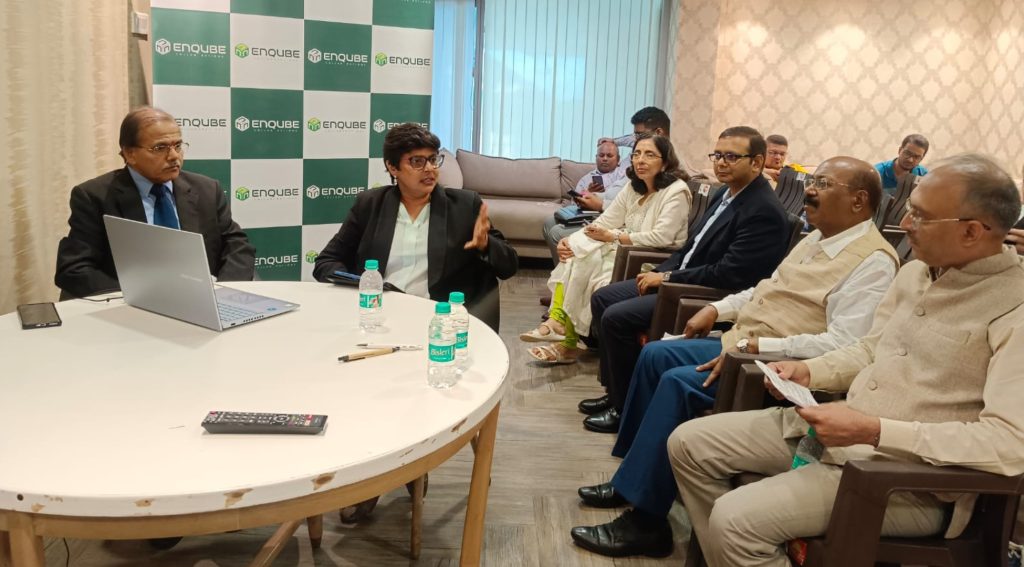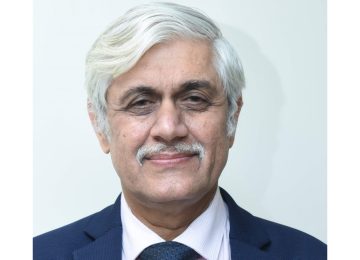India is undergoing a significant transformation in its approach to sustainability, moving from broad sustainability goals to ESG (environmental, social, and governance) frameworks and embracing circular economy.
While challenges like the pace of implementation, adoption roadblocks, and funding gaps persist, I view this shift as a substantial achievement, especially given India’s vast geographical and population complexities.
“Circular economy is critical for achieving sustainable targets and net-zero,” stated Renjini Liza Varghese, CEO, WriteCanvas, at the recent “People, Planet, Profit – Green Finance, Sustainability & AI for Climate Action” event.
The promise of a circular economy:
The circular economy aims to drastically reduce dependency on new natural resources and optimize the use of existing materials. This approach is crucial for minimizing landfill waste, a significant burden for many urban administrations. For instance, Mumbai alone generates around 8,000 tons of waste daily, a staggering amount that highlights the urgency of effective waste management.
The core principle of the circular economy lies in the “3 R’s”: reuse, repurpose, and recycle. Implementing these principles can substantially decrease the volume of waste ending up in landfills.
Currently, India produces 62 million tons of waste annually. This figure is projected to skyrocket to 165 million tons by 2030 and 436 million tons by 2050. Alarmingly, over 50% of this waste ends up in landfills, with less than 30% being recycled. This presents a massive, untapped opportunity for growth and innovation.
Economic and job creation potential:
India’s circular economy is poised for exponential growth, with an estimated market value of $2 trillion by 2050. This expansion is expected to generate nearly 10 million jobs, particularly in vital sectors like recycling, refurbishment, product design, and manufacturing.
Key takeaways from the event:
The event was organized by Enqube Collaborations brought together experts to discuss critical environmental, economic, and AI topics.
Dr. Narendra Mairpady, Enqube Collaborations highlighted global and domestic efforts in climate change adaptation and mitigation. He stressed the urgent need for enhanced climate finance and green finance to support developing nations and also touched upon the crucial role of AI in sustainability.
Dr. Sarita Zele, Professor and Associate Director, MIT University, presented India’s ambitious vision for net-zero by 2070, highlighting the nation’s rapid strides towards alternative energy sources and decreasing reliance on fossil fuels. She also underscored the importance of sustainable agriculture, reforestation, and the LIFE Mission for Environment.
Swati Agrawal, CEO & President, CARE Analytics and Advisory, focused on Green Finance and ESG Investing. She advocated for thorough impact studies on green projects to prevent greenwashing and called for outcome-based approaches aligned with SEBI’s ESG mandates.
Ashwin Kumar Choudhary, Group CRO, Union Bank of India, detailed how banks are integrating sustainability imperatives. He explained that, as advised by the RBI, banks are assessing climate risk in their portfolios and requesting data from corporations to evaluate adaptation and mitigation measures for new projects. He said that banks are actively working to raise awareness at all functional levels and prepare for the broader sustainability transition.
Prasanna Lohar, CEO, Future Transformation & President, India Blockchain Forum, said, “India’s net-zero 2070 commitment, with 2030 targets of 45% carbon intensity reduction and 50% non-fossil energy, marks a crucial sustainability shift. Achieving our ESG and SDG goals across agriculture, energy, and finance demands over $10 trillion in green investments by 2070. At India Blockchain Forum, we believe Deeptech—specifically blockchain for transparent carbon-credit tracking and AI for precision agriculture and ESG measurement—will form the digital spine of India’s regenerative economy, driving impact, trust, and accountability on our resilient path to 2070.”
Jithesh Shetty, CEO, Crediblesg, spoke about how AI is transforming sustainability data management and reporting for a varied audience. “At Credibl, we apply foundation models from OpenAI, Anthropic, and Gemini to make hundreds of enterprises audit-ready from day one.”
In addition, Dr Ajay Singh, Associate Director of ISB, Anjali Tarapore an Independent Director, Nirmala Patel Ex- Banker, Strategy and AI Consultant and R Kannan, Corporate and Economic Advisor also spoke on topics concerning Climate, sustainability, AI and funding.
India’s dedication to achieving net-zero by 2070, supported by ambitious 2030 targets for reduced carbon intensity and increased non-fossil energy, signals a transformative era for sustainable development. This monumental shift, requiring over $10 trillion in green investments, will be significantly bolstered by Deeptech innovations like blockchain for transparent carbon credit tracking and AI for precision agriculture. These technologies are set to become the digital backbone of India’s regenerative economy, fostering a future built on impact, trust, and accountability.












